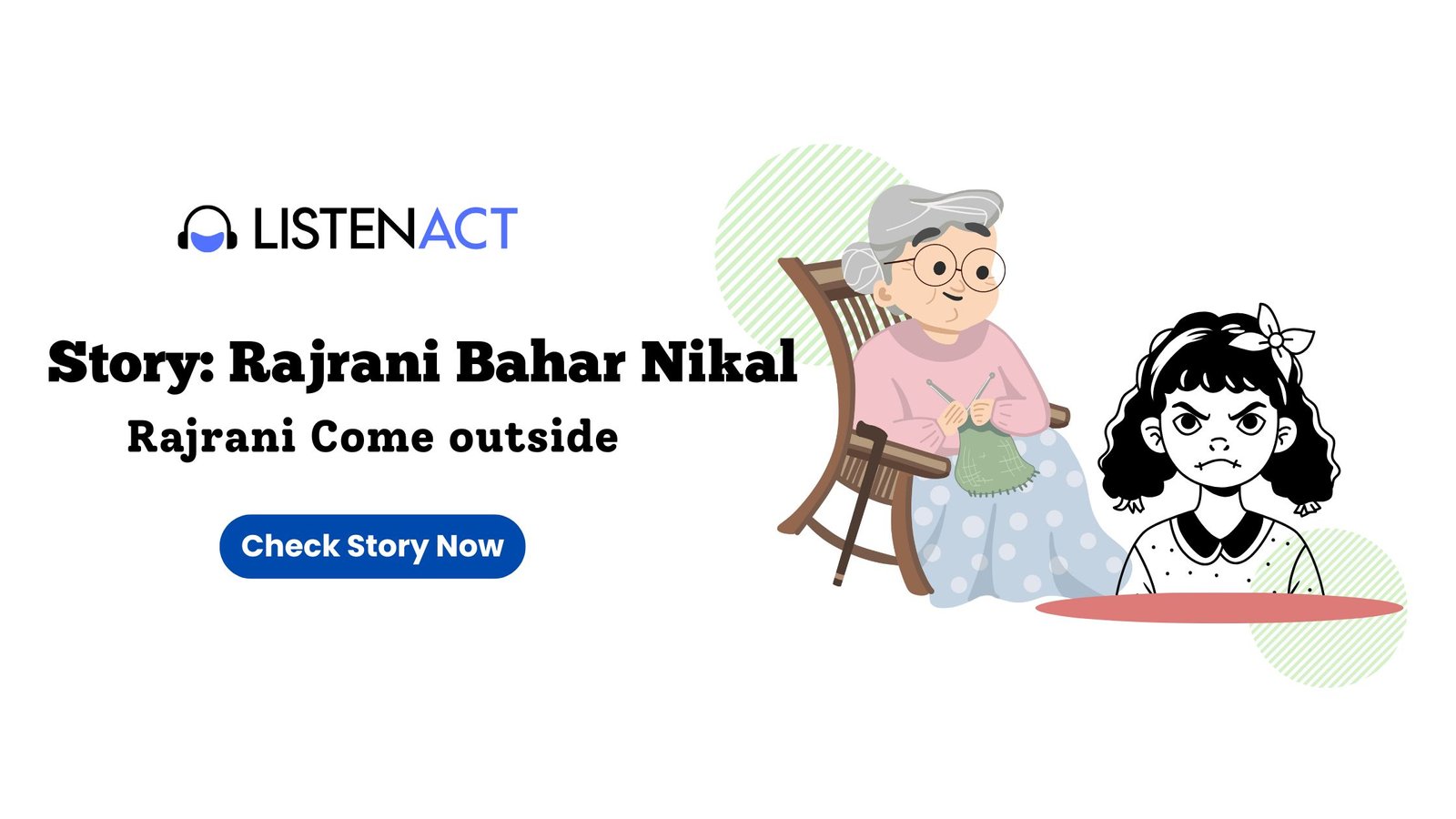My name is Chetna. I was brought up in Kapurthala, a small city in Punjab. I was an only child until I turned six, and my parents loved pampering me. When I started going to school, my mother would buy me treats like Chatmola, Fanta, wafers, and other snacks to welcome me home. As soon as my school van dropped me off at the stop, she would tell me what special treat was waiting for me at home. Every morning, before I left for school, she would ask me what I wanted for lunch, and when I returned, she would announce that she had made it for me. It was the happiest moment of my day.
By the time I was in LKG (Lower Kindergarten) and just four years old, I had become a little more demanding. Every day, I would tell my mother, “Make sweet rice today,” “Make churma today,” “I want sugar paratha,” etc. She always smiled and complied.
One day, I was in class when Alka Madam suddenly walked in. She pointed her finger at me and angrily told me to stand up. Then, she started scolding me in front of the whole class. She said, “I’ve received a complaint about you. You trouble your mother about food and refuse to eat what’s made at home. From now on, you should eat only what your mom gives you.”
As she scolded me, my mind started racing. Who complained to her? Who gossiped? My mother is surely not the one, and if she had to complain, she would tell my father, not Alka Madam. Besides, Alka Madam wasn’t even teaching our class. It couldn’t have been my mother. So, who complained—and why?
Then it struck me—Alka Madam was a friend of my grandmother, Rajrani. They met occasionally because Alka Madam had her Dak-khana account with her (Post office account). So, my grandmother must have been the one to tell her. But why? Why would she? What is her problem? I don’t bother her. I don’t ask her anything.
While I stood there nodding and listening calmly, a volcano was erupting inside me. I was storing my anger. My face was blank. I was not reacting. This anger would only burst at one person—the one who complained to Alka Madam—Rajrani.
Rajrani was a quarrelsome and bitter lady. She was notorious in the neighborhood because she would curse people very badly over small issues. Abusing is in itself a very bad habit, but abusing anybody and everybody is much worse. She was not a polite person, and people avoided messing with her. (I am grown up now and I can understand why she was a bitter lady, but that story is for another day.)
I reached home. My mother went inside the kitchen. I did not go inside the room or kitchen. I stayed in the open space (called Vehra in Punjabi), and I threw my bag, removed my tie and belt, and rolled up my sleeves. I looked toward the second-floor room, called Chobara in Punjabi, and yelled, “Rajrani, bahar nikal!”—which means, “Rajrani, come outside!”
Startled, she asked, “What happened?”
I was furious. I demanded, “How dare you complain about me? Do you make me anything? Then why do you have a problem?” She kept denying the allegations, but I got even angrier. Pointing to my face, I shouted, “Where! Where! Where is it written that I am a fool?” (It is more entertaining in Punjabi: Kithe, kithe, kithe likhiya mere moh te befkoof?) I know Alka Madam knows you and meets you, so you are the only person who could have complained to her!”
Only my mother and aunty (Tayi) were at home, and they both were hiding from the showdown. They both decided not to intervene because they were afraid. Rajrani would abuse them and call them some really bad words. They both were watching from their hiding spot. I could see my Tayi (aunt) laughing. I did not get distracted. My anger was unhinged.
Rajrani was getting tired of me. I said, “God will not be happy if you make a kid mad. No benefit of saying ‘Ik jot sarav veypak’ if you complain to my school teacher for no reason.” (One light is in everybody.) My dialogues were not ending. So, in the end, Rajrani said, “Tell your mom to make what you want to eat. I won’t say anything.” I looked in anger and said, “You better not! I dare you.”
Later that evening, when my father came home from work, my mom told him everything. He laughed and said, “Haye oye Rabba, Chetu ta Rajrani te chale gayi.” (Oh God, Chetu took after Rajrani.)
I cried, “NO, NO, NO, Papa! I am your daughter! I take after you.”
From that day onward, whenever I fought with my dad about something, he would tease me, saying, “Rajrani’s daughter is as quarrelsome as her,” and I would immediately stop arguing and be nice.
My whole neighborhood was amused by that fight. Gugu’s grandmother, Vidhaya Granny (Jhai), and Rita Aunty would often stop me on the street and say, “Chetna, say that dialogue—‘Rajrani bahar nikal!’”
And every time I said it, everyone would burst into laughter.

